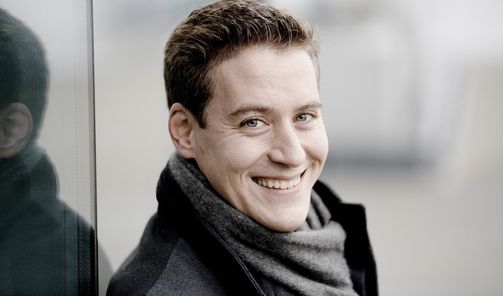
Advertisement
---SCROLL DOWN FOR ENGLISH VERSION---BRAHMS: D-dúr hegedűverseny, op. 77
-szünet-
BRAHMS–SCHÖNBERG: g-moll zongoranégyes, op. 25
Közreműködik: Baráti Kristóf hegedű
Concerto Budapest
Vezényel: Keller András
Brahms és a magyarok kapcsolatának, valamint a műveiben megjelenő magyaros elemeknek hosszú tanulmányokat lehetne szentelni (többen szenteltek is), az első hatás pedig akkor érte a szerzőt, amikor megismerkedett Reményi Edével, akinek zongorista partnere lett több közös koncert alkalmával. A Magyar táncok sorozatának számos témáját, dallamát Reményi mutatta meg neki, és ő ismertette meg a kor kiváló, szintén magyar származású hegedűművészével, Joachim Józseffel, aki nemcsak közeli barátja lett, de a komponista számos művét is inspirálta. Leginkább 1878-as egyetlen Hegedűversenyét, melyre a Wörth-i tó szépségén túl a magyar zene is hatott, erre különösen a harmadik tétel néhány motívuma utal. A versenymű szólistáját, a Kossuth- és Liszt-díjas Baráti Kristófot a hazai közönségnek nem kell bemutatni, hiszen a romantikus repertoár e népszerű darabja is nem egyszer megszólalt már Stradivari-hegedűjén a magyarországi hangversenytermekben. A D-dúr koncertnél jóval korábbi az 1856 és 1861 között keletkezett g-moll zongoranégyes, melynek energikus negyedik tételében a Rondo alla zingarese cím teszi egyértelművé a magyar cigányzenészek hatását. Mivel Arnold Schönberg nagyon szerette Brahms e művét, de sohasem hallott belőle igazán jó előadást az eredeti felállásban, 1937-ben izgalmas zenekari köntösbe bújtatta a kompozíciót. A Concerto Budapest együttesét a március óta Kossuth-díjas zeneigazgató, Keller András dirigálja.
---
Listen to Brahms! 4.
BRAHMS: Violin Concerto in D major, Op. 77
--intermission--
BRAHMS–SCHÖNBERG: Piano Quartet in G minor, Op. 25
Baráti Kristóf violin
Concerto Budapest
Conductor: András Keller
Lengthy studies could be dedicated (and many already have) to examining the relationship between Brahms and the Hungarians, as well as the Hungarian elements appearing in his works. The first influence on the composer was when he met Ede Reményi, whose pianist partner he became at several joint concerts. Reményi introduced Brahms to the numerous themes and melodies used in the Hungarian Dances series, and also introduced József Joachim, the outstanding violinist of the period who was similarly Hungarian. Joachim not only became his close friend but he also inspired many of the composer’s works, foremost his only Violin Concerto (1878), which was influenced by the beauty of Lake Wörth and Hungarian music, as is particularly evident in several motifs in the third movement. Soloist of the concerto, Kossuth and Liszt Prize laureate Kristóf Baráti, needs no introduction to a domestic audience, because he has played this popular piece of the Romantic repertoire on several occasions on his Stradivari violin in concert halls in Hungary. The Piano Quartet in G minor, written between 1856-1861, is much earlier than the Concerto in D major. The influence of Hungarian Gypsy musicians is made clear by the title Rondo alla zingarese in the energetic fourth movement of the quartet. Since Arnold Schönberg adored this work by Brahms, but he never heard a really good performance of it in the original setup, in 1937 he dressed the composition in an exciting orchestral attire. Concerto Budapest have been conducted by music director and Kossuth Prize winner András Keller since March.
Advertisement
Event Venue & Nearby Stays
Zeneakadémia, Liszt Ferenc tér 8., Budapest, Hungary
Tickets
